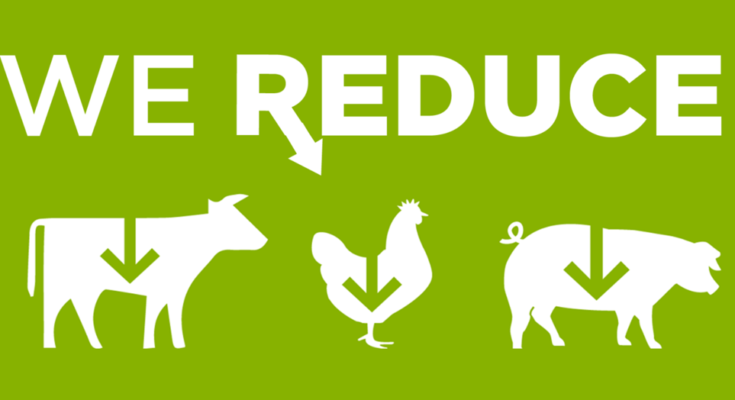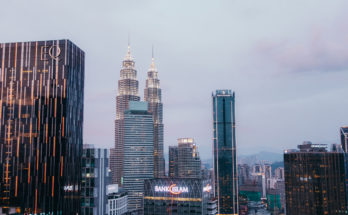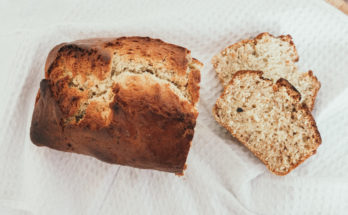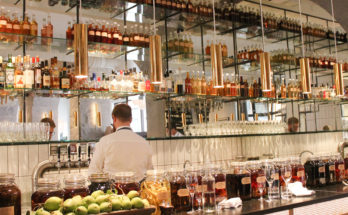After two months of avoiding all forms of meat, poultry and seafood I have come to a conclusion: I am a reducetarian.
In the UK, hungry Brits eat almost 20 million chickens a week. And how do we raise so many chickens? We genetically modify them to gain weight quickly, we feed them GM foods, we pump them with water, growth hormones and antibiotics and we keep them in cages where there are 14 chickens per square meter. These barn chickens do not see daylight their entire lives.
For those concerned about the welfare of chickens, there are also the ‘free range’ option which, in my opinion, is just a clever smoke screen. Free range does not mean the chickens get to play outside. They still live in large indoor barns with slightly more roaming space and a few pop holes leading outside. With each free range barn housing over 10 000 chickens, pop holes are rarely used as it would take an average chicken hours to make its way through the crowd to a pop hole. And with plenty of food and water inside, why would they want to go outside? A few organic chicken farms have sprung up in the country side, riding the sustainability wave so popular at them moment, but organic chickens are still just a drop in the bucket. Our drastic demand for and consumption of chicken has driven the industry to become cruel and inhumane.
And then there’s pork. Pigs are by nature scavenging omnivores which means they will eat anything. From rotten food to carcasses to their own children. Robert Pickton, a famous Canadian serial killer, made use of this trait and even fed pigs the bodies of the nearly 50 women he murdered. If that isn’t enough to put you off, pork can also cause diseases such as Salmonella, Trichinellosis, Listeriosis and all sorts of worms , especially if eaten undercooked. According to the Independent, a recent study revealed that antibiotic-resistant E.Coli was also present in 63% of pork samples tested.
In the UK, over 10 million pigs are farmed each year, most of them from factory farms where pigs never get to go outside but live in large warehouses, are encouraged to eat and, as with chickens, are pumped with growth hormones and antibiotics. They are forced to live in their own urine, faeces and vomit, suffer from mange and at time of slaughter, over 80% of pigs have pneumonia due to breathing in toxic gasses emitted from their excrement. In factory farms, sows give birth in crates so small they can’t even turn around in them. The piglets’ teeth are painfully clipped to minimise damage to the sow and each other when fighting for teats and their tails get chopped off as pigs bite each other’s tails off when bored or aggressive – a practice that is technically illegal but still happens to 80% of piglets on pig farms in the UK. What pigs have to endure from birth to their violent death has had a serious impact on my decision to go meat-free.
In 2013 the number of beef breeding cows in the UK totalled at 1.6 million, a number that has surely grown in the last 5 years. Even though some beef cattle is reared in intensive indoor factory systems, most beef cattle in the UK are raised on a grazing-based system. This means the cattle live out in fields where they graze and are housed only during harsh weather conditions. When calves are born, females are taken away for fattening up elsewhere and the male calves are killed. When slaughtering comes around after less than 5 years of age, the cattle are stunned with electricity before having the blood vessels in their neck cut.
And then finally, it’s fish. Contrary to popular belief, fish do feel pain. They have a nervous system and pain receptors and therefor the welfare of fish and shellfish needs to be taken into account. Every year we pull over 90 million tonnes of fish from the sea, numbers that we will not be able to maintain for long if we continue on our current level of fish consumption. Nearly 40% of all industrial fishing is by-catch which is simply discarded. An estimated 300,000 whales, dolphins and porpoises die in fishing nets every year. On top of that, scientist believe that by 2050 90% of all wild seafood species will be completely depleted if we continue on our current path. That’s right fish-loving folks, there will be no more.
So after all of this, how is it possible to ever have a mouth full of meat or fish again? Well, it’s complicated. It’s difficult to follow an ‘all-or-nothing’ diet as food is not only food, but a form of culture, expression and even religion. Being South African, I will never stop eating biltong and a steak on the fire will always be a part of my family’s traditions. I cannot label myself as a vegetarian because I am not a vegetarian. But in a time of environmental crisis, it becomes a responsibility to consider where your food comes from and what effect it has on our world. And therefore, I declare myself a reducetarian – committed to eating less meat, poultry and seafood, and trying my best to only buy it from reputable, sustainable sources.
In recent months the reducetarian moment has gained a great following as the lifestyle is healthy, easy and socially conscious. Through reducing meat consumption you can greatly increase your health, hit the 5-a-day vegetable goal and reverse or entirely prevent heart disease, coronary artery disease and certain cancers. I have felt a great improvement in my general healthy by cutting out meat and fish in the last two months. By cutting out imported meat and fish and sticking to locally grown fruits and vegetables you are able to reduce your carbon footprint by nearly 60%. Most meats and fish come packed in one-use plastic bags, containers or on a polystyrene tray wrapped in awful clingfilm or plastic wrap that will, like other non-recyclable plastics, end up on landfills at best and in the ocean at worst where it will never, ever degrade. Yup, never ever. By reducing my meat and fish intake over the last 2 months I have seen a dramatic change on the amount of waste we produce each week.
I encourage, no, dare you to take on your social responsibility and reduce where you can. Think about your health, animal welfare, plastic production and consumption, the effect you have on the environment and what you can do to become a part of the change we so desperately need.
For the record I just want to state that I will probably never eat chicken again. It is still as gross to me as the last time I ate it and I don’t think I will ever have any desire to chop a slimy chicken breast again.




